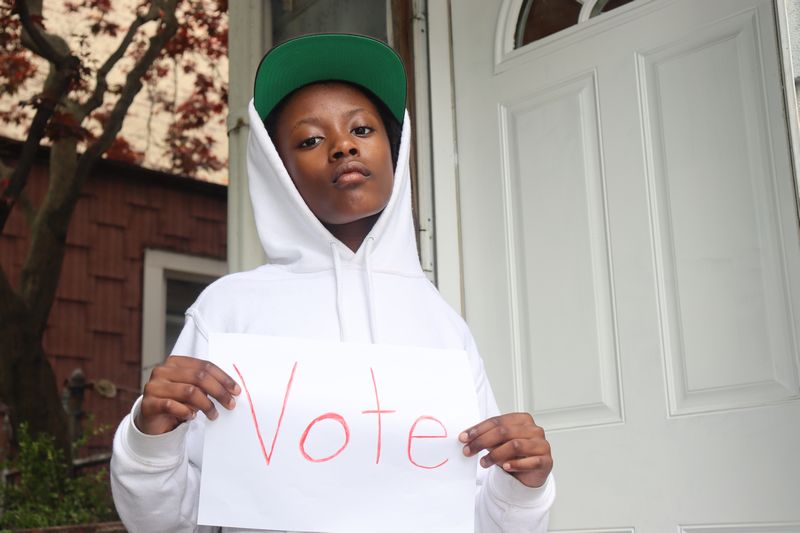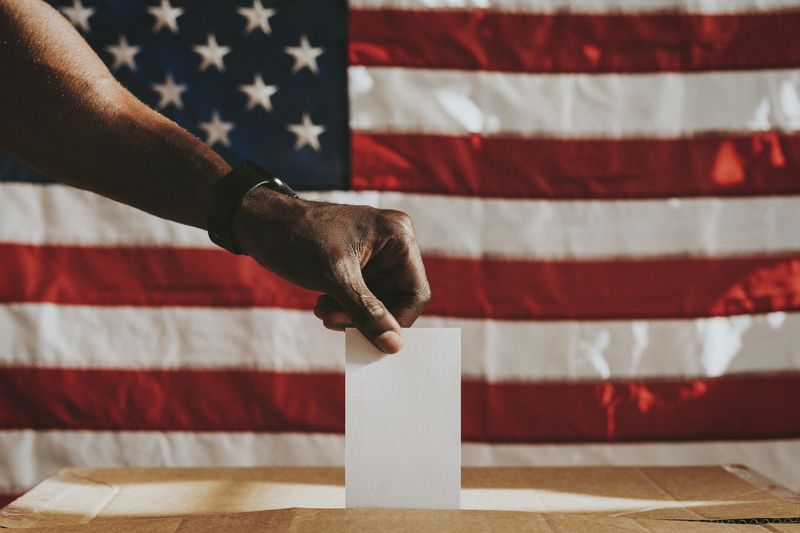It Takes 44 Days to Restore Voting Rights After A Felony Conviction in Alabama
By Melisha Daniels - July 17, 2020In 2016, approximately 2.5% of America's voting population were prevented from voting in the presidential election due to having a felony conviction on their background. About 7.4% of Black voters were disenfranchised from their voting rights due to criminal convictions.
The history of felony voting disenfranchisement in the United States can be dated to the country’s beginning.
As early as 1792, the practice of 'civil death' or the loss of all civil rights after conviction of a crime was carried over from Britain to the Americas. And without regard to the known disparities that exist in the U.S. criminal justice system, 2 centuries later, felony disenfranchisement remains a technique used to prevent American citizens who have been convicted of crimes from participating in the nation's democratic voting process.

The state of Alabama is also no stranger to felony voting disenfranchisement. As a matter of fact, the Alabama Constitution, drafted in 1819, was meant to formally establish 'white supremacy' in the state. The state's ruling document revoked the right to vote for the insane, idiot and various criminal offenses, including 'crimes of moral turpitude'.
Despite a 1985 U.S. Supreme Court ruling that determined the language 'moral turpitude' was vague, the state updated felony voting laws in 1996 that included these same 'crimes of moral turpitude' as a disqualifier from voting. The Moral Turpitude Act of 2017 was enacted to clarify exactly what crimes are considered 'crimes of moral turpitude'. The act provides a method to restore voting rights for people convicted of certain felonies.
To help relieve this oft times unsurmountable barrier, JustasIam.Careers is providing this informational artical about restoring your voting rights after a conviction in the State of Alabama.
What You Need to Know About Voting After a Felony Conviction in Alabama
Voting Rights Eligible for Restoration upon Completion of Full Sentence including Parole/Probation
People convicted of these crimes are eligible to have rights restored after completion of sentence, including periods of probation or parole.
- Assault
- Endangering the water supply
- Robbery
- Forgery
- Manslaughter
- Kidnapping in the 1st or 2nd degree
- Possession, manufacture, transport or distribution of a destructive device or biological weapon
- Selling, furnishing or giving away a destructive device or biological weapon
- Possession, manufacture, transport or distribution of a detonator, explosive, poison or hoax device
- Possession or distribution of a hoax device represented a destructive device or weapon
- Attempt to commit an explosive or destructive device or biological weapon crime
- Conspiracy to attempt an explosive or destructive device or biological weapon crime
- Hindrance or obstruction during detection, disarming or destruction of a destructive device
- Possession or distribution of a destructive device or weapon intended to cause injury or destruction
- Trafficking in cannabis, cocaine, amphetamines, methamphetamine, or other illegal drugs
- Bigamy
- Torture or willful maltreatment of a child under the age of 18
- Aggravated child abuse
- Prohibited acts in the offer, sale, or purchase of securities
- Burglary
- Theft of Property
- Theft of lost property
- Theft of trademarks or trade secrets
- Endangering the water supply
The criteria to be eligible to apply to have your voting rights restored is:
- No pending criminal charges
- Have no outstanding fines or restitution due (not including post-conviction fines).
You can apply to have your voting rights restored by submitting an application of Certificate of Eligibility to Register to Vote (CERV). It takes approximately 44 days to process the form and restore your right to vote.
Voting Rights Restored After Pardon
Individuals convicted of the following crimes are eligible to have their voting rights restored after successful completion of the pardon process.
- Enticing a child to enter a vehicle for immoral purposes
- Murder
- Production of obscene matter
- Parents or guardians permitting children to engage in obscene matter
- Possession of obscene matter
- Possession with intent to distribute child pornography
- Rape
- Sodomy
- Sexual abuse
- Sexual torture
- Soliciting a child by computer
Voting Rights not Eligible for Restoration
People who have been convicted of Treason or Impeachment are not eligible to have their voting rights restored in the State of Alabama.
To find out more information about your right to vote after a felony conviction in the state of Alabama visit:
This article is for informational purposes and is not all inclusive of the voting rights, processes and procedures for voting with felony convictions. If you have questions regarding your right to vote with a felony conviction, please contact your state election board or your state department of probation and parole to determine your rights and exercise your right to vote.



